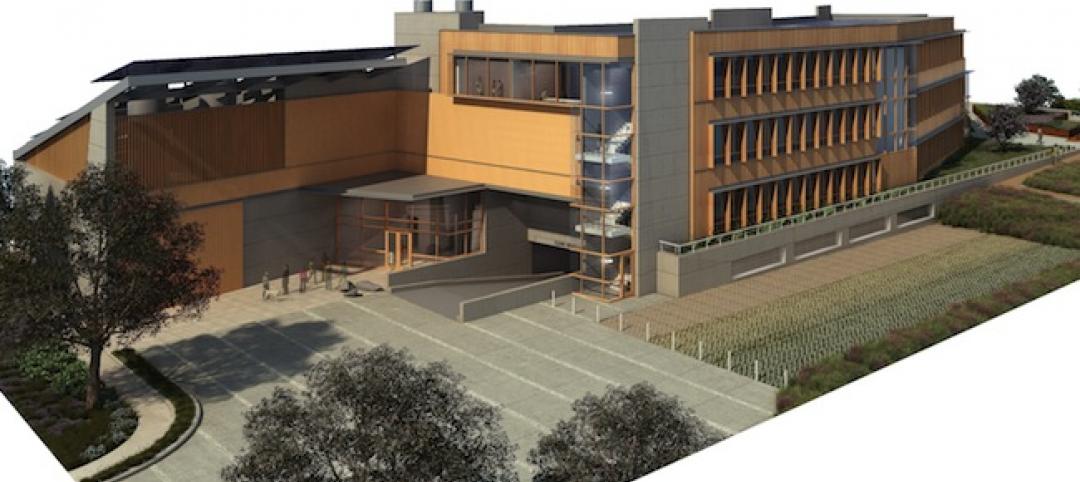Stellar, an architecture, engineering, construction and mechanical services firm, has earned the Associated Builders and Contractors' (ABC) highest national safety designation for 2011-the Safety Training Evaluation Process (STEP) Diamond-level award. Stellar was the only contractor in the Florida First Coast Chapter (with more than 140 member companies), and one of only four in Florida, to earn Diamond status.
There are six levels of STEP achievement: Participant, Bronze, Silver, Gold, Platinum, and Diamond. Member companies that achieve Diamond status-a new level established just last year-are an elite group. More than 2,100 ABC contractor members applied for the STEP program in 2011, with just 94 members achieving STEP Diamond status.
"Our most important goal is to send our employees and subcontractors home safe to their families, every day," said Philip Hinrichs, Stellar's Vice President of Risk Management. "That's why we develop a job-specific safety plan for each and every project and perform safety audits on a regular basis. We're proud to see these efforts recognized."
Stellar has achieved STEP certification 16 years in a row. Now widely accepted as the construction industry's standard measure of safety performance, the STEP awards were established in 1989 to evaluate and improve safety practices and recognize outstanding safety efforts. The award criteria include two industry benchmarks-the experience modification rate (EMR), which is applied to workers' compensation premiums, and the Occupational Safety and Health Administration's (OSHA) recordable injury and illness incidence rates (measured by the number of incidents per 100 employees per year).
STEP Diamond recipients must have long-term records of exceptional safety performance, with EMRs at or below 0.7 (a significantly lower rate than the national average of 1.0) and average incidence rates at least 50 percent below construction industry averages. EMRs, developed by the insurance industry, are based on comparisons of firms doing similar types of work. Lower rates, meaning that fewer or less-severe accidents occurred, result in lower insurance costs. BD+C
Related Stories
| May 29, 2014
7 cost-effective ways to make U.S. infrastructure more resilient
Moving critical elements to higher ground and designing for longer lifespans are just some of the ways cities and governments can make infrastructure more resilient to natural disasters and climate change, writes Richard Cavallaro, President of Skanska USA Civil.
| May 29, 2014
Wood advocacy groups release 'lessons learned' report on tall wood buildings
The wood-industry advocacy group reThink Wood has released "Summary Report: Survey of International Tall Wood Buildings," with informatino from 10 mid-rise projects in Europe, Australia, and Canada.
| May 29, 2014
Five finalists, including SOM and Zaha Hadid, chosen in competition for Sweden's tallest skyscraper
In Sernecke's competition to design Sweden's tallest skyscraper, five finalists have been selected: Manuelle Gautrand Architects, Ian Simpson Architects, SOM, Wingårdhs Arkitektkontor, and Zaha Hadid Architects.
| May 29, 2014
Retail renovation trends: Omni-channel shopping, personalized experiences among top goals of new store designs
In pursuit of enhanced customer experiences, retailers are using Big Data, interactive technology, and omni-channel shopping to transform their bricks and mortar locations.
| May 28, 2014
Video Blog: How today’s construction firms are bridging the BIM gap
Turner Construction and Parsons Brinckerhoff talk about how BIM has revolutionized the way that they conduct projects, and how technology has allowed them to leverage collaboration in such a way that they can work with decentralized teams.
| May 28, 2014
KPF's dual towers in Turkey will incorporate motifs, symbols of Ottoman Empire
The two-building headquarters for Turkey’s largest and oldest financial institution, Ziraat Bank, is inspired by the country’s cultural heritage.
| May 28, 2014
B.R. Fries completes medical center focused on male health
Occupying the building’s entire second floor, the male-centric center is honeycombed with examination and consultation rooms, as well as areas for noninvasive testing.
| May 28, 2014
Moshe Safdie's twin residential towers in Singapore will be connected by 'sky pool' 38 stories in the air [slideshow]
Moshe Safdie's latest project, a pair of 38-story luxury residential towers in Singapore, will be linked by three "sky garden" bridges, including a rooftop-level bridge with a lap pool running the length between the two structures.
| May 27, 2014
Supergreen Venter lab displayed in new walk-through video
ZGF Architects' La Jolla building for genomics pioneer J. Craig Venter and his nonprofit research organization aims to be the first net-zero energy, carbon-neutral biological lab.
| May 27, 2014
America's oldest federal public housing development gets a facelift
First opened in 1940, South Boston's Old Colony housing project had become a symbol of poor housing conditions. Now the revamped neighborhood serves as a national model for sustainable, affordable multifamily design.
















